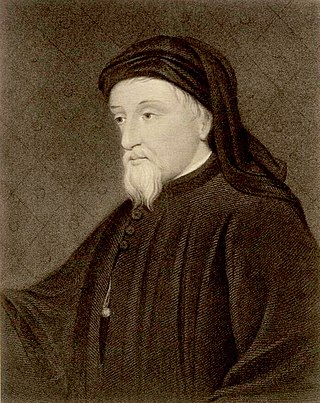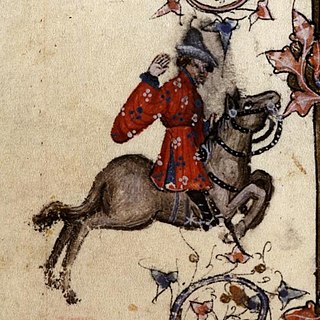Please note this is about the text of this Wikipedia article; it should not be taken to reflect on the subject of this article.
Contents
- Etymology
- List
- The Canterbury Tales
- The Book of the Duchess
- The Parson's Tale
- Parlement of Foules
- The Romaunt of the Rose
- The House of Fame
- Boece
- Anelida and Arcite
- Troilus and Criseyde
- The Legend of Good Women
- Treatise on the Astrolabe
- Miscellaneous poems
- Usages
- See also
- Footnotes
- References
- External links
Do not restore or edit the blanked content on this page until the issue is resolved by an administrator, copyright clerk or VRT agent.
If you have just labeled this page as a potential copyright issue, please follow the instructions for filing at the bottom of the box.

The previous content of this page or section has been identified as posing a potential copyright issue, as a copy or modification of the text from the source(s) below, and is now listed at Copyright problems :
Temporarily, the original posting is still accessible for viewing in the page history .
- You must permit the use of your material under the terms of the Creative Commons Attribution-Sharealike 3.0 Unported License (CC BY-SA 3.0) and the GNU Free Documentation License (GFDL) (unversioned, with no invariant sections, front-cover texts, or back-cover texts).
- Explain your intent to license the content on this article's discussion page.
- To confirm your permission, you can either display a notice to this effect at the site of original publication or send an e-mail from an address associated with the original publication to permissions-en
 wikimedia.org or a postal letter to the Wikimedia Foundation. These messages must explicitly permit use under CC BY-SA and the GFDL. See Wikipedia:Donating copyrighted materials.
wikimedia.org or a postal letter to the Wikimedia Foundation. These messages must explicitly permit use under CC BY-SA and the GFDL. See Wikipedia:Donating copyrighted materials. - Note that articles on Wikipedia must be written from a neutral point of view and must be verifiable in published third-party sources; consider whether, copyright issues aside, your text is appropriate for inclusion in Wikipedia.
Your rewrite should be placed on this page, where it will be available for an administrator or clerk to review it at the end of the listing period. Follow this link to create the temporary subpage.
- Simply modifying copyrighted text is not sufficient to avoid copyright infringement—if the original copyright violation cannot be cleanly removed or the article reverted to a prior version, it is best to write the article from scratch. (See Wikipedia:Close paraphrasing.)
- For license compliance, any content used from the original article must be properly attributed; if you use content from the original, please leave a note at the top of your rewrite saying as much. You may duplicate non-infringing text that you had contributed yourself.
- It is always a good idea, if rewriting, to identify the point where the copyrighted content was imported to Wikipedia and to check to make sure that the contributor did not add content imported from other sources. When closing investigations, clerks and administrators may find other copyright problems than the one identified. If this material is in the proposed rewrite and cannot be easily removed, the rewrite may not be usable.
- Posting copyrighted material without the express permission of the copyright holder is considered copyright infringement, which is both illegal and against Wikipedia policy.
- If you have express permission, this must be verified either by explicit release at the source or by e-mail or letter to the Wikimedia Foundation. See Wikipedia:Declaration of consent for all enquiries.
- Policy requires that we block those who repeatedly post copyrighted material without express permission.
If you have tagged the article for investigation, please complete the following steps:
- Add the following to the bottom of Wikipedia:Copyright problems/2023 February 16:
* {{subst:article-cv|English words first attested in Chaucer}} from Presumptive deletion over copyright concerns, please see: Wikipedia:Contributor copyright investigations/20210315. ~~~~ - Place this notice on the talk page of the contributor of the copyrighted material:
{{subst:Nothanks-web|pg=English words first attested in Chaucer|url=Presumptive deletion over copyright concerns, please see: Wikipedia:Contributor copyright investigations/20210315}} ~~~~ - To hide a section instead of an entire article, add the template to the beginning of the section and {{ Copyvio/bottom }} at the end of the portion you intend to blank.



















